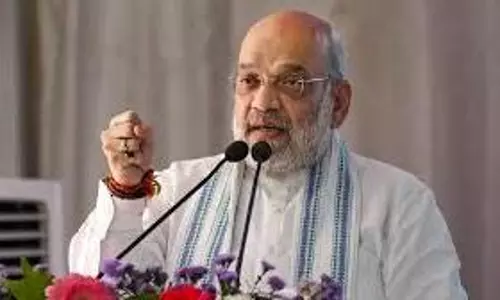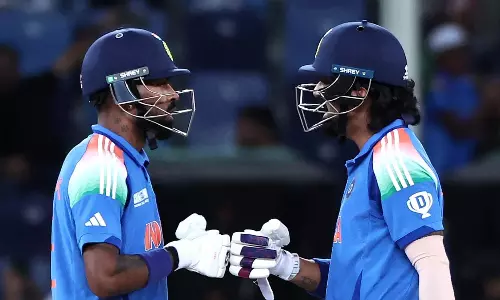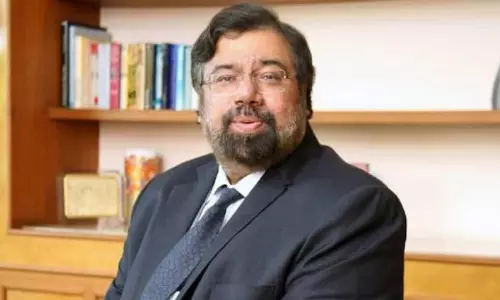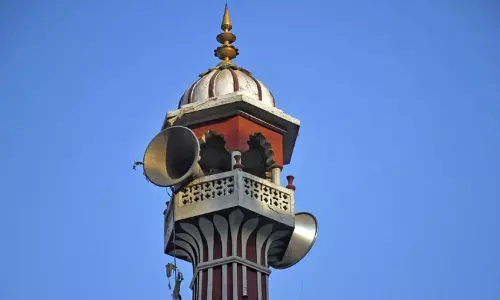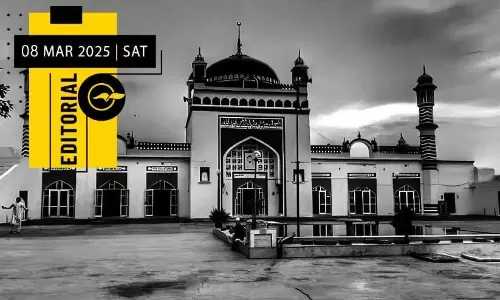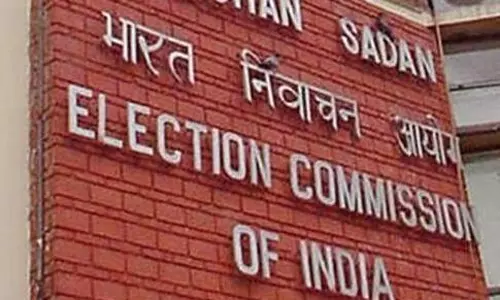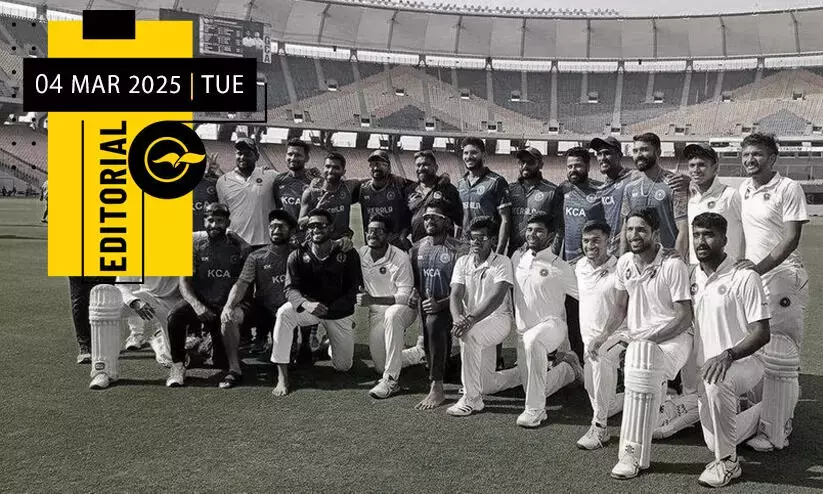
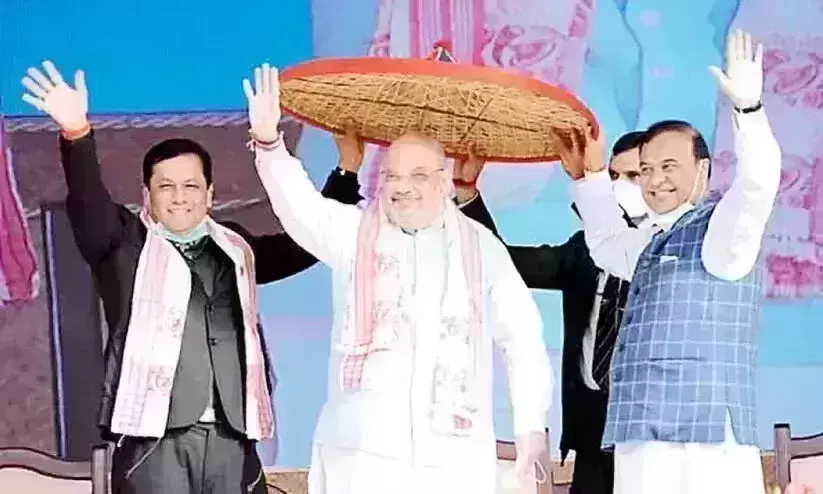
Assam: Who will win the mandate in first major election after CAA
text_fieldsGuwahati: As Assam gears up for the state assembly polls, for the first time the assembly election will be fought between gatbandhans - the BJP and its allies called the rainbow alliance, the opposition Congress-led 'grand alliance' and an alliance of two newly-formed regional parties as a third front.
The Election Commission of India last Friday announced the dates for the elections to the Assam Assembly, set to be held over three phases — March 27, April 1 and April 6 — with the results to be declared on May 2.
The last date for the submission of nomination for the first phase is March 9, where over 80 lakh voters of 47 constituencies spread over 12 districts of Upper Assam will decide the fate.
But the three camps - BJP- AGP(Asom Gana Parishad)- UPPL, Congress-BPF-AIUDF-Left and the third front Raijor Dal-Assam Jatiya Parishad - are still trying to iron out differences over sharing of seats. The formal declaration on seat sharing is expected by tonight
First major election after CAA
Politics in Assam with a diverse socio-ethnic profile, has long been shaped by regionalism and sub-nationalism, mainly surrounded by the sensitive issue of "illegal immigration" from the neighbouring country of Bangladesh.
Assam was the first state, which had protested against the contentious Citizenship (Amendment) Act or CAA, as the people of the state believe the citizenship law, which grants citizenship to non-Muslims of three neighbouring countries, may threaten the identity, culture and demography of Assam.
The spontaneous protest against the CAA in December 2019, primarily led by students, which later turned violent had killed five persons. The protesters argued that it was detrimental to the interests of the indigenous people of Assam.
Two leading student organisations of Assam — All Assam Students' Union (Aasu) and Asom Jatiyatabadi Yuba Chatra Parishad (AJYCP) — helped to give birth to a regional group Assam Jatiya Parishad (AJP). Both organisations spearheaded the six-year-long anti-foreigner's agitation along with the now-defunct Assam Gana Sangram Parishad that culminated with the signing of the historic Assam Accord in 1985 and the birth of AGP, which came to power in the immediate assembly election.
The two new regional parties — Assam Jatiya Parishad (AJP) and the Raijor Dal — owe their genesis to the massive anti-CAA and they will contest the coming elections together against the BJP.
The Opposition parties have continuously flagged the promises of Prime Minister Narendra Modi which he had made in the run up to the 2014 general elections and 2016 assembly elections.
The opposition says let alone packing off illegal Bangladeshis or implementing the Assam Accord, they have instead imposed the Citizenship (Amendment) Act which not only violates the March 24, 1971, cut-off year for identifying and deporting illegal foreigners but also affects the state's social fabric. Modi had promised to deport all illegal Bangladeshis by May 2014 and announced that his government would implement all the clauses of the 1985 Assam Accord in letter and spirit. The people of Assam believe CAA violates the sanctity of the Accord as the accord set March 24, 1971 as the cut off date.
But both the Opposition alliances accused the BJP government of betraying the people of Assam as by introducing CAA, BJP has allowed Bangladeshis to come to India till December 2014 and given them a red carpet welcome "which is out to destroy Assamese culture and identity".
In the past five years, apart from the CAA, there have been one more major political developments in Assam - the publication of the National Register of Assam (NRC) - a Supreme Court-monitored citizenship counting exercise which has left lakhs in the limbo. While the ruling BJP and some indigenous organisations rejected the NRC as the number of left out from the NRC is allegedly less than they expected. BJP has advocated that it will bring a new NRC while Congress said they are committed to complete the NRC, but those genuine Indians excluded should be included. The NRC exercise was started during the Congress regime while the draft and final list was published when BJP was in power both in the Centre and state. However, the 19.06 lakh excluded people can vote and have to approach the Foreigner Tribunal for inclusion in the list after they got the NRC rejection certificate.
In 2021, the Congress is cashing in on this anxiety and sentimentality, with CAA as one of its main poll planks — evident in their speech campaigns, promises to build a CAA martyrs' memorial, collection of anti-CAA gamosas, among others. Its campaign, Assam Basaon Ahok, or "Let's Save Assam" plays into these very sentiments. Congress also announced "five guarantees" to the people of the poll-bound state, including a law to nullify the contentious Citizenship Amendment Act, if voted to power. However, BJP counters how can a state government nullify a law passed by the parliament.
The BJP, on the other hand, is steering clear of the CAA.In fact, many senior leaders have denounced it as a "non-issue", citing how CAA barely affected BJP's winning streak both in the Lok Sabha elections of 2019, or local body polls in 2018, despite widespread protests against the party's citizenship law.
The BJP seems to be banking heavily on developmental schemes and peace.
It is also trying to woo the indigenous voter base. Two out of three programmes by Prime Minister Modi, in the run up to the elections, have been held in upper Assam districts, which is the traditional bastion of Assamese nationalism, and saw the most widespread protests against the CAA.
The other aspects of Assam politics will see how the tea community - the Congress's traditional support- behave in the polls. The tea community vote is decisive in as many as 42 of the state's 126 Assembly seats. The community had started drifting towards the BJP since it came to power in 2014. The desertion of the tea community - the Congress's traditional support base - had led to its debacle in the 2016 Assembly and 2019 Lok Sabha polls.
The recent visit of AICC general secretary Priyanka Gandhi Vadra is seen as a fresh push by the Opposition party to win over the electorally decisive tea community before the polls.
What Political observers say
In the 2016 elections to the 126-member House, the winning alliance comprised the BJP (60 seats), the Bodoland People's Front (12 seats) and the Asom Gana Parishad (14 seats). This time, the BJP will continue its alliance with the AGP but has broken with the BPF, instead going with the United People's Party Liberal (UPPL) in the Bodoland region. BPF has joined Congress-led alliance this time.
In 2016, Congress and AIUDF had fought separately. Congress won 26 of the 122 seats, polling a vote share of nearly 31 %. On the other hand , AIUDF contested 74 seats and 13 with a vote share of 13%.
This time Congress party wants Badruddin Ajmal's AIUDF to contest 20 seats, the Bodoland People's Front to contest 11 seats, give four seats for the three Left parties, two seats for the Anchalik Gana Morcha and one for the Rashtriya Janata Dal.
Senior journalist and now a media educator Manorom Gogoi says that the AJP-Raijor Dol alliance and Congress-BPF-AIUDF alliance in Upper Assam and Lower Assam may create a hurdle for the ruling BJP and its ally and may harm its prospects.
Researcher Bonojit Hussain says that it is a little too early to say anything definitively but one thing is clear, it is a tougher fight for BJP compared to last time.
"For past one month, a couple of us have been intensely traveling and speaking to people across Nalbari and parts of Kamrup district. For the past three days we have been roaming around western Assam. And one thing is very clear, the "election on the ground is very different from what your smartphone/laptop screen tells and shows you!," Hussain says.
"This time AIUDF will have an absolutely outstanding winning strike rate - will be a big gainer from the alliance. In the constituencies where it is strong, it won't even be a two-cornered contest - but AIUDF all the way. Badruddin Ajmal has everything to gain from the grand alliance," another Assam polls observer and senior journalist Amarjyoti Borah says.
He says that BJP had handed Assam to Congress on a platter- which the latter couldn't grab. "Now BJP is all set to win and form government again in Assam," Borah adds.
Senior advocate Nilay Dutta also says the BJP and its ally are presently set to sweep Phase one.




